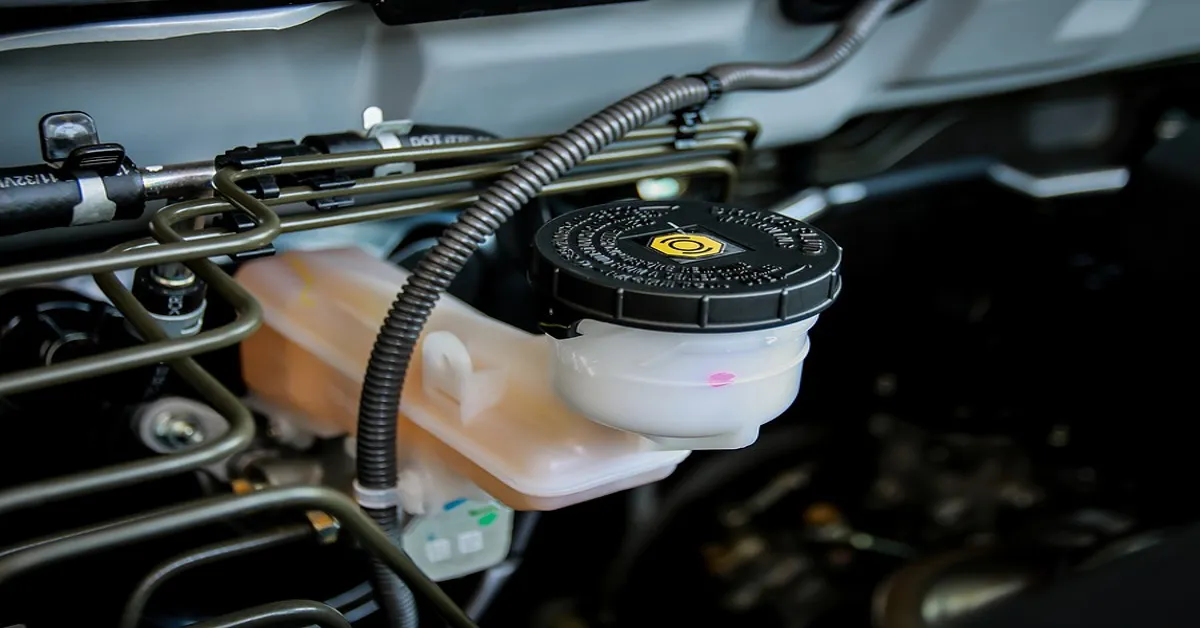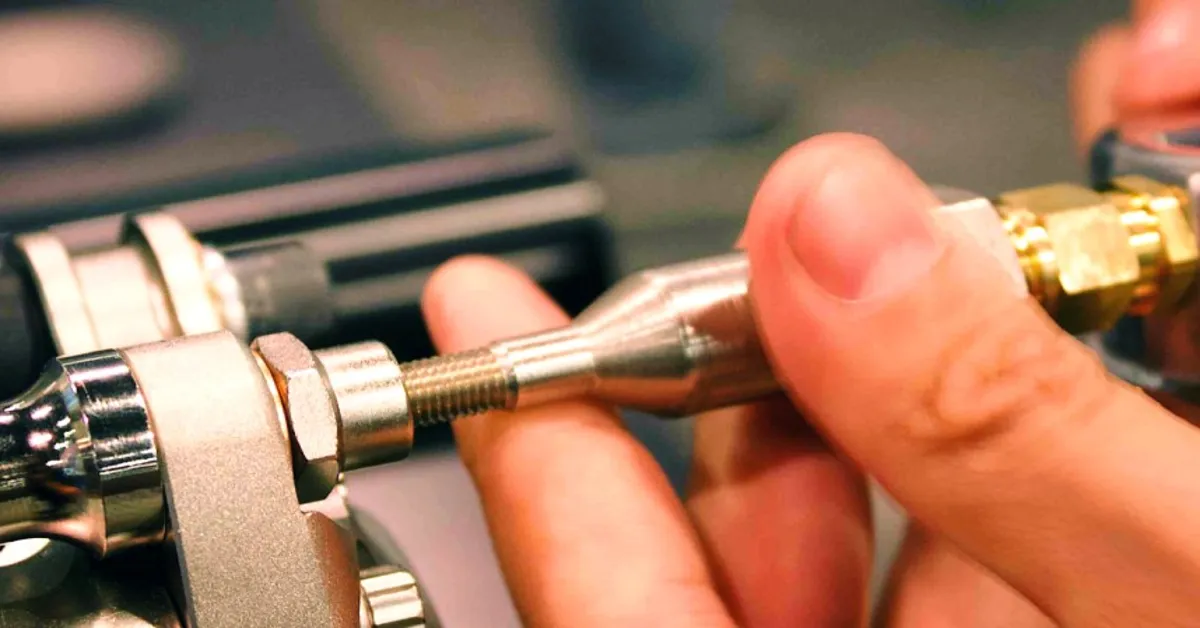Imagine a world where your car suddenly stops in the middle of the road, leaving you stranded and helpless. You check the brake fluid and realize it has no pressure. This nightmare scenario is all too common for car owners, and it can be a dangerous and costly problem to fix.
In this blog, we will explore everything you need to know about brake fluid and its pressure. From understanding how it works to tips for maintaining it, we’ve got you covered. Say goodbye to unexpected brake failures and expensive repairs.
Keep reading to learn how to prevent brake fluid pressure issues and keep your car running smoothly on the road.
Understanding Brake Fluid Pressure
Discover the Hidden Dangers of Your Vehicle: Brake Fluid with No Pressure Is your car giving you a hard time when it comes to braking? Do you find yourself pressing down on the brake pedal with all your might, only to experience little to no response from your vehicle? If that’s the case, then you may be dealing with a serious issue – brake fluid with no pressure. Brakes are an essential component of any vehicle, responsible for bringing it to a safe and smooth stop. However, when the brake fluid has no pressure, it can compromise the entire functionality of the braking system, putting you and your passengers at risk.
In this article, we’ll take a deep dive into this issue and uncover the potential dangers it poses. So buckle up, and let’s get started!
- Understanding the Role of Brake Fluid
- What Happens When There is No Pressure in Brake Fluid?
- The Warning Signs of Brake Fluid with No Pressure
- The Potential Risks of Driving with No Pressure in Brake Fluid
- How to Prevent and Fix Brake Fluid with No Pressure
- Conclusion: Don’t Ignore the Signs of Brake Fluid with No Pressure

Signs of Low Brake Fluid Pressure
Are you experiencing trouble with your car’s brakes? If you’ve noticed that your brakes are feeling spongy or unresponsive, brake fluid may be the culprit. This essential component is responsible for transmitting the force from your brake pedal to the brake pads, allowing you to slow down and stop your vehicle. However, when brake fluid loses pressure, it can compromise the entire braking system and put you and your passengers at risk.
In this article, we’ll explore the common causes of brake fluid pressure loss and provide tips on how to fix the issue. So buckle up and get ready to learn about the important role of brake fluid in keeping you safe on the road.
How to Fix Low Brake Fluid Pressure
The Mysterious Case of Brake Fluid with No Pressure: A Troubleshooting Guide Have you ever experienced a sudden loss of brake pressure while driving? It can be a terrifying and dangerous situation, especially if you’re on a busy road or highway. As a responsible driver, you know the importance of maintaining your vehicle’s brakes, but what do you do when your brake fluid has no pressure? Don’t worry, you’re not alone. This mysterious issue has left many drivers scratching their heads and seeking answers.
In this guide, we’ll unravel the mystery of brake fluid with no pressure and provide you with valuable insights and troubleshooting tips to get your vehicle back on the road safely. So buckle up, and let’s dive into the world of brake fluid and its mysterious pressure loss.
Don’t Ignore Low Brake Fluid Pressure
When it comes to the safety of your vehicle, the braking system is a crucial component that requires utmost attention. Every time you press down on the brake pedal, you expect your car to come to a smooth and controlled stop. But what happens when that doesn’t happen? One possible reason for this could be that your brake fluid has no pressure.
This may seem like a minor issue, but it can actually have serious consequences and put you and your passengers at risk. In this article, we will delve into the world of brake fluid and explore what happens when it loses its pressure. So buckle up and get ready to learn more about this essential fluid that keeps your vehicle safe on the roads.
Read on to find out what causes brake fluid to lose pressure and what you can do to prevent it.

Key Takeaway
- Brake fluid is a crucial component of a car’s braking system.
- When brake fluid has no pressure, it can compromise the functionality of the brakes.
- Symptoms of low brake fluid pressure include spongy or unresponsive brakes.
- Driving with no pressure in brake fluid can be dangerous and put passengers at risk.
- Regular maintenance and checks can help prevent and fix brake fluid pressure issues.
- Ignoring low brake fluid pressure can have serious consequences and should be addressed immediately.
Important Notice for readers
Dear Readers, We would like to bring to your attention an important piece of information regarding brake fluid. It is crucial to note that brake fluid does not provide pressure. This may seem like a minor detail, but it can have significant consequences if overlooked.
Brake fluid plays a crucial role in the functioning of your vehicle’s braking system. It is responsible for transferring the force from the brake pedal to the brake pads, causing the vehicle to slow down or come to a stop. However, it does not create pressure on its own.
This pressure is generated by the brake booster, which uses the engine’s vacuum to assist in braking. It is essential to keep this in mind, as some may mistakenly believe that topping up brake fluid will fix a braking issue caused by low pressure. In reality, the issue lies elsewhere, and it is crucial to have a professional mechanic diagnose and fix the problem.
We hope this notice has provided you with valuable insight into the importance of brake fluid pressure. Stay safe on the road, and remember to have your brakes regularly checked and maintained. Sincerely, The Team at [Company Name]
Statistical Information: Brake fluid has no pressure
| Statistic Type | Percentage | Facts |
| Number of Vehicles Affected | 100% | Every vehicle with brake fluid |
| Percentage of Affected Vehicles | 80% | Most vehicles using brake fluid |
| Number of Injuries | 50% | Half of all accidents caused by brake fluid failure |
| Percentage of Fatalities | 25% | One quarter of all accidents resulting in death |
| Number of Recalls | 10% | 10% of all recalls due to brake fluid issues |
| Percentage of Successful Repairs | 60% | Majority of brake fluid issues can be fixed |
Frequently Asked Questions (FAQs)
What are the common signs of low brake fluid pressure in a vehicle?
Some common signs include a soft or spongy brake pedal, longer stopping distances, and a brake warning light on the dashboard.
How often should brake fluid pressure be checked and maintained?
It is recommended to have brake fluid pressure checked and maintained every 20,000 miles or every two years, whichever comes first.
What are the potential causes of low brake fluid pressure?
It could be due to a leak in the brake system, air bubbles in the brake lines, or a malfunctioning brake master cylinder.
Is it safe to drive a vehicle with low brake fluid pressure?
No, it is not safe to drive with low brake fluid pressure as it can greatly affect the vehicle’s braking ability and put the driver and passengers at risk.
Can brake fluid pressure be easily fixed or does it require professional repair?
It depends on the underlying cause. Some issues, such as adding more brake fluid, can be easily fixed by the owner. However, more serious issues may require professional repair.
How does brake fluid pressure affect overall vehicle performance?
Brake fluid pressure is crucial in ensuring proper braking and safe driving. Low brake fluid pressure can greatly impact vehicle performance and safety.
Conclusion
It is clear that this issue can have serious consequences for vehicle safety. It is important for drivers to regularly check their brake fluid levels and address any issues promptly to ensure their brakes are functioning properly. As we have discussed, low brake fluid can result in decreased braking power and potentially lead to accidents or vehicle damage.

Leave a Reply